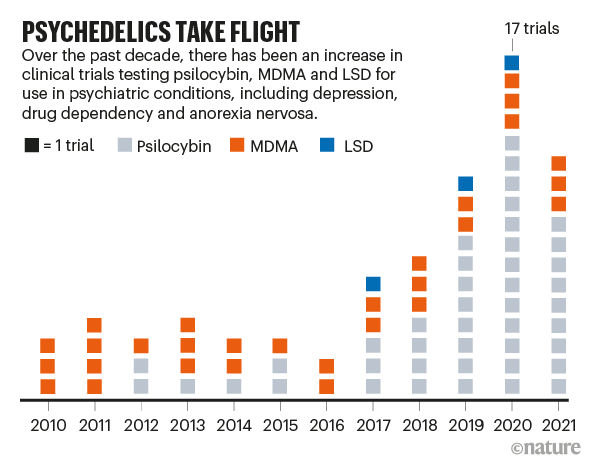Posts Tagged ‘psychotherapist’
Next: Psychedelic-assisted psychotherapy?
How ecstasy and psilocybin are shaking up psychiatry (Nature): … The Imperial study was one of a spate of clinical trials launched over the past few years using illicit psychedelic drugs such as psilocybin, lysergic acid diethylamide (LSD) and MDMA (3,4‑methylenedioxymethamphetamine, also known as molly or ecstasy) to treat mental-health disorders, generally with the close…
Read MoreThree tips for wise minds to calm coronavirus anxiety
__ In the early days of COVID-19, we faced many difficult decisions in everyday life: trying to weigh risk and decide whether to meet up or stay home, send kids to school or visit the gym. Now that my home state of California has its “shelter in place” order—and many other cities and states are…
Read MoreThe brain virtues of physical exercise
Dr. Adrian Preda, our newest Expert Contributor, writes today the first in a series of thought-provoking articles, challenging us to think about physical exercise as the best and most unappreciated form of “brain exercise”. A superb article. And one thing is clear, he points out: “the brain really likes it when it’s asked to be…
Read More“Brainfood” Makes the Dictionary!
A fun article from the BBC highlights some of the latest entries to the 2.5 billion-word database of words in the Collins English Dictionary, 9th edition.We were of course biased and happy to see “brainfood” as a newly minted word. According to Webster’s New Millenniumâ„¢ Dictionary of English, they define “brain food”…any food that is considered to aid intelligence, memory, or creativity; by extension, any intellectual sustenance.We’d like to add SharpBrains to the list of brain foods!
Read More

